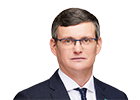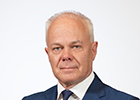Terviseministri 2024. aasta ettekanne riigi pikaajalise arengustrateegia "Eesti 2035" elluviimisest
Istung: XV Riigikogu, III istungjärk, täiskogu istung
Kuupäev: 2024-03-19 12:01
Osalevad Poliitikud:
Sõnavõtte kokku: 102
Koosseis: 15
Päevakorra kestus: 2h 55m
AI kokkuvõtted: 102/102 Sõnavõtud (100.0%)
Analysis: Structured Analysis
Poliitikute Kõneaeg
Poliitikud
Analüüs
Kokkuvõte
Käesolev päevakorrapunkt käsitles terviseministri 2024. aasta etteannet riigi pikaajalise arengustrateegia “Eesti 2035” elluviimisest. Protseduuriliselt oli korraldus: ministri ettekanne kuni 30 minutit, seejärel Riigikogu liikmete võimalus esitada üks küsimus ja pärast seda fraktsioonide vaheline läbirääkimiste voor. Mingit otsust vastu ei võeta. Esitati ettevalmistav juhend, mille põhieesmärk on arutelu ja põhimõttelised kokkulepped, mitte praeguse päevaga lõplik mõne otsuse tegemine. Lisaks anti märku, et hiljem tuleb põhjalik demokraatlik arutelu ning valdkondadeülene koostöö, et edaspidi jätkata tervise edendamist ja riigi pikaajalist haiguste ennetust.
Tehtud otsused 1
Istung pikendati kuni päevakorra ammendumiseni, kuid mitte kauem kui kell 14:00. Otsuse tegi Riigikogu kollektiivselt pärast hääletust: 55 poolt, 0 vastu, 1 erapooletu.
Aktiivseimkõneleja
Tanel Kiik (endine Sotsiaaldemokraatlik Erakond) esines enim ning tegutses juhtpositsioonina kõnesitsel, mis viitas tugevale osalemisele ja külgetõmbavale juhitavale rollile aruteludes. Tema roll oli vasakpoolsel (vasakrinde) poolt esinemine ning ta esindas tugevalt arutelu ja ettepanekute esitamist seoses tervise rahastuse ja põhiprobleemide lahendustega.
Aseesimees Toomas Kivimägi
AI kokkuvõte
See kõne kirjeldab terviseministri 2024. aasta ettekanne riigi pikaajalise arengustrateegia Eesti 2035 elluviimise menetluse kohta Riigikogus: ettekanne kuni 30 minutit, iga Riigikogu liige saab ühe küsimuse, seejärel on fraktsioonide läbirääkimised ja otsust ei võeta vastu, ning kutsutakse auväärt Riina Sikkut kõnetooli.
Terviseminister Riina Sikkut
AI kokkuvõte
Riina Sikkut nendib, et Eesti on suur samm edasi teinud tervena elatud aastate ja tervisekäitumise parandamisel, kuid edasine edenemine jääb aeglaseks ning ees on väljakutsed nagu ülekaal, ennetus, vaimne tervis, perearsti nappus ja rahastuse jätkusuutlikkus, mille lahendamiseks on vaja tihedat koostööd ja tervishoiusüsteemi reforme.
Aseesimees Toomas Kivimägi
AI kokkuvõte
Aseesimees Toomas Kivimägi ütles, et aeg on täis saanud, ja palus ministril ja kolleegidel paari minutiga kokku võtta ning küsimuste-vastuste voorus edasi rääkida oma väljaütlemata mõtetest.
Terviseminister Riina Sikkut
AI kokkuvõte
Riina Sikkut vastas jaatavalt ning ütles, et kolm minutit.
Aseesimees Toomas Kivimägi
AI kokkuvõte
Aseesimees Toomas Kivimägi palub saada kolm lisaminutit.
Terviseminister Riina Sikkut
AI kokkuvõte
Riina Sikkut rõhutab, et lisaraha abil saavad lühemad ravijärjekorrad, väiksem omaosalus, palgatõus tervishoiutöötajatele ning kättesaadavad uued ravimid ja teenused, ning et tervishoiu jätkusuutlikkuse tagamiseks on vaja ennetust ning laste tervislikku elukeskkonda, sest me kõik vastutame tervise eest koos ja igaüks eraldi.
Aseesimees Toomas Kivimägi
AI kokkuvõte
Suur tänu ministrile, nüüd on aeg kolleegidel küsida ning kõige kiirem vastaja on ootuspäraselt Anastassia Kovalenko-Kõlvart.

Anastassia Kovalenko-Kõlvart
Profiileerimine Eesti Keskerakonna fraktsioonAI kokkuvõte
Anastassia Kovalenko-Kõlvart rõhutab, et suhkrumaks ei ole adekvaatne lahendus ning küsib, miks selle kõrval ei rakendata terviklikke meetmeid laste tervise parandamiseks (koolilõuna toetuse suurendamist, laste liikumisharjumuste edendamist ja juur- ning köögiviljade käibemaksu alandamist) ning kas plaan on probleem kogumina lahendada.
Terviseminister Riina Sikkut
AI kokkuvõte
Riina Sikkut nentis, et Eestis on aastakümneid tegeletud ennetusega: koolides suurendatakse liikumist Liikuma Kutsuv Kooliga, koolitoit korraldatakse nii, et valikuid on vähem, kuid kvaliteet on parem, ja suhkru maksuga püütakse vähendada laste energiatarbimist ning ajendada tootjaid retsepte muutma, et tervislikumad valikud oleksid kõigile kättesaadavad.
Aseesimees Toomas Kivimägi
AI kokkuvõte
Aseesimees Toomas Kivimägi palub Tanel Kiik sõna võtma.

Tanel Kiik
Profiileerimine Fraktsiooni mittekuuluvad Riigikogu liikmedAI kokkuvõte
Tanel Kiik küsib terviseministrilt, kas eraravikindlustuse laiendamine on võluvits tervisevaldkonna rahapuuduse lahendamiseks või pigem süvendab see ebavõrdsust arstiabi kättesaadavuses võrreldes solidaarse tervishoiuga.
Terviseminister Riina Sikkut
AI kokkuvõte
Eestis eraravikindlustus pole vajalik, kuna Tervisekassa hoiab halduskulud alla 1% ja rahastab ravi solidaarselt, samas eraravikindlustus tõstaks kulusid ning tekitaks vertikaalseid lepinguid ja suurendaks ebavõrdsust, seega on mõistlik kasutada esmatasandit – perearsti ja pereõe – ning eriarsti juurde pöörduda vaid läbi perearsti.
Aseesimees Toomas Kivimägi
AI kokkuvõte
Aseesimees palub Aivar Sõerdil sõna võtta.

Aivar Sõerd
Profiileerimine Eesti Reformierakonna fraktsioonAI kokkuvõte
Aivar Sõerd ütles, et raha juurde lisamine ei lahenda tervishoiusüsteemi probleeme ning rõhutas ravimite kättesaadavuse halba olukorda Eestis, kus vaid umbes viiendik EL-i heaks kiidetud ravimitest jõuab turule ja siseriiklikud menetlused on aeglased, ning küsis, miks see vana probleem on tähelepanuta jäetud ja mida on selle parandamiseks tehtud.
Terviseminister Riina Sikkut
AI kokkuvõte
Riina Sikkut ütles, et vaatamata perearstide puudusele tuleb esmatasandit tugevdada ning tagada tervisekulude mõistlikkus ja hea kättesaadavus, ning lisas, et Euroopa tasandi ravimireformid—tsentraliseeritud müügiloaga, pika regulatiivse kaitse perioodi ja varajase geneeriliste ravimite turule pääsuga—aitavad väikestel turgudel ning kiirendavad ravimite kättesaadavust patsientidele.
Aseesimees Toomas Kivimägi
AI kokkuvõte
Aseesimees Toomas Kivimägi kutsub Eduard Odinetsi lavale.
Eduard Odinets
AI kokkuvõte
Eduard Odinets pöördub Riina poole kahe küsimusega: kuidas Ida-Viru mehed võiksid elada sama kaua kui teised ning kas ja kuidas laiendada ravikindlustust, et saavutada universaalne kindlustus, ning kas see tähendaks suuri kulutusi või oleks pikaajaline investeering inimeste tervisesse.
Terviseminister Riina Sikkut
AI kokkuvõte
Riina Sikkut rõhutas universaalset ravikindlustust ja ennetava abi, nagu perearsti- ja toitumisnõustamine, et vähendada haiguste ja EMO-kulude kasvu ning parandada inimeste toimetulekut ja elukvaliteeti, sest praegune süsteem katab pigem kallid elupäästvad sekkumised kui lihtsat tõenduspõhist abi, mis on inimlikult ja majanduslikult mõistlik.
Aseesimees Toomas Kivimägi
AI kokkuvõte
Kõne alguses palutakse Urmas Kruuse tribüünile tulla.

Urmas Kruuse
Profiileerimine Eesti Reformierakonna fraktsioonAI kokkuvõte
Urmas Kruuse ütles, et ta ei nõustu ministri väitega, et 100 miljonit ei tähenda midagi, sest 2025. aastaks on puudujääk juba 147 miljonit, rõhutas, et inimese enda osalus ja käitumine on tihti olulisem kui lisaraha ning küsis, miks Euroopa Liidus ühte riiki ravimi turule toomine ei lase turul toimida kõigis liikmesriikides, tõi välja hariduse mõju pikemale elule ning arvas, et ehk oleks mõistlik suunata tervisekassast vähem raha ning investeerida rohkem haridusse, sest sealt võib tulla selge kokkuhoid.
Terviseminister Riina Sikkut
AI kokkuvõte
Riina Sikkut ütles, et Euroopa Liidu ravimite registreerimine on tsentraalselt reguleeritud, kuid rahastusotsused ja hindade kokkulepped on liikmesriikide pädevuses, ning kuigi haridusse lisaraha on oluline, on tervishoiu jaoks hädapärane lisavahenduste maht vähemalt 150 miljonit aastaks 2025, et hoida teenuse taset, parandada arstiabi kättesaadavust ja laiendada ravikindlustust ning liikuda universaalse ravikaitse suunas.
Aseesimees Toomas Kivimägi
AI kokkuvõte
Aseesimees Toomas Kivimägi palub Urve Tiidust esinema.

Urve Tiidus
Profiileerimine Eesti Reformierakonna fraktsioonAI kokkuvõte
Perearst on tervise edendamisel ja haiguste ennetamisel võtmeroll, kuid süsteem on probleemidega täis—noorte perearstide nappus ja rahastus—ning küsitakse, mis oleks selle esimese väravavalvuri süsteemi edukaks toimimiseks retsept ning kas virtuaalne perearst võiks lahendus olla.
Terviseminister Riina Sikkut
AI kokkuvõte
Riina Sikkut rõhutas perearstide koolitamise suurendamist ning kõrvale kaasamist üldarstide, õdede rolli suurendamist, tervisekeskustesse lisaspetsialiste toomist, apteegiteenuste laiendamist (sealhulgas tubakast loobumise nõustamist ja vaktsineerimist), töötervishoiuarste kaasamist ning üle Eesti tugeva võrgustiku loomist, et inimene saaks kodu lähedal tervisekeskuses suure osa tervisemurede lahendused.
Aseesimees Toomas Kivimägi
AI kokkuvõte
Aseesimees Toomas Kivimägi kutsub Liina Kersnat kõnelema.

Liina Kersna
Profiileerimine Eesti Reformierakonna fraktsioonAI kokkuvõte
Liina Kersna rõhutab, et teaduspõhised meetmed, nagu koolis liikumise suurendamine ja kooli alguse edasilükkamine, parandavad õpitulemusi ja vaimset tervist, kuid märgib, et suitsiidide arv pole langenud ning küsib, kui palju ja kuidas investeeritakse suitsiidide ennetusse võrreldes teiste ennetusprogrammidega.
Terviseminister Riina Sikkut
AI kokkuvõte
Riina Sikkut ütles, et liikumine parandab vaimset tervist ning koolipäevade sees tuleb liikumisnormi tagada, kuid suitsiidiennetuseks on valmimas süsteemne kava, mis hõlmab meediat (sealhulgas Papageno preemia), kooli spetsialiste ja õpilaste hindamisküsimustikke ning mille eesmärk on trendi pöörata ja noorte enesetappude arvu langetada.
Aseesimees Toomas Kivimägi
AI kokkuvõte
Aseesimees Toomas Kivimägi mainis Kristina Šmigun-Vähi.

Kristina Šmigun-Vähi
Profiileerimine Eesti Reformierakonna fraktsioonAI kokkuvõte
Kristina Šmigun-Vähi väljendas rõõmu, et lapsed ja noored on prioriteediks, rõhutas riigi sekkumise vajadust koolide ja lasteaedade tasandil ning pakkus välja koolides magusate jookide keelustamise, küsides samas, kas Lätis tõstetud ettevõtete tervisekindlustuse maksumäär võiks motiveerida töötajaid rohkem tervisesse panustama.
Terviseminister Riina Sikkut
AI kokkuvõte
Riina Sikkut rõhutab, et kuigi töötajate tervisele on olemas maksusoodustused, tuleb eelarve taustal keskenduda varajasele sekkumisele ja ennetusele töökeskkonnas ja koolis, et vähendada ülekoormust ja läbipõlemist ning parandada kolleegiaalset suhtlemist, ning suurendada tööandjate teadlikkust, mida vaimse tervise hoidmiseks teha—mitte vaid rahaliste kulutuste kaudu.
Aseesimees Toomas Kivimägi
AI kokkuvõte
Aseesimees Toomas Kivimägi kutsus Andre Hanimägi esinema.

Andre Hanimägi
Profiileerimine Fraktsiooni mittekuuluvad Riigikogu liikmedAI kokkuvõte
Andre Hanimägi rõhutab tervishoiu alarahastuse mõju arsti juurde pääsemisele ning küsib, kas riik saab läbi süsteemsete muudatuste ja tugevama suunamise haiglatele ja arstidele tervishoiu paremini kindlustada.
Terviseminister Riina Sikkut
AI kokkuvõte
Riina Sikkut rõhutab, et väikeses Eestis peab tervishoid olema koostöö ning patsientide ravitee peab olema paremini juhitud, lisaraha tuleb suunata käitumise muutusele ja paremate tervisetulemuste saavutamisele ning tasustamine peab põhinema patsiendi kogemusel ja saavutatud tulemustel, mitte teostatud protseduuridel.
Aseesimees Toomas Kivimägi
AI kokkuvõte
Aseesimees palub Jaak Aabil võtta sõna.

Jaak Aab
Profiileerimine Fraktsiooni mittekuuluvad Riigikogu liikmedAI kokkuvõte
Jaak Aab tõstatas mure omaosaluse kasvuga tervishoius, tuues välja, et see hõlmab lisaks ravimitele ja hambaravile järjest suuremat osa eriarstiabist, ning küsis riikide võrdluses sobivat määr ja mõistlikku taset, et omaosalus ei muutuks liiga suureks.
Terviseminister Riina Sikkut
AI kokkuvõte
Riina Sikkut rõhutab, et Eesti omaosaluse protsent tervishoiukuludest on umbes 22%, mis seab eakad ja krooniliste haigustega patsiendid vaesuseRiskile, ning et parema ja õiglasema süsteemi nimel tuleb suurendada maksumaksja rahastust, pakkuda rohkem kättesaadavaid vastuvõtte ja e-konsultatsioone ning vähendada inimeste oma taskust makstavate tervishoiuteenuste koormust.
Aseesimees Toomas Kivimägi
AI kokkuvõte
Aseesimees Toomas Kivimägi palub Kersti Sarapuu esinema.

Kersti Sarapuu
Profiileerimine Fraktsiooni mittekuuluvad Riigikogu liikmedAI kokkuvõte
Kersti Sarapuu rõhutas erihoolekande olulisust, kiitis Järvamaal tegutseva mittetulundusühingu Me Hoolime Sinust südamlikku tööd ning nende ööpäevaringset abi erivajadustega lastele ja eakatele, ning küsis, kuidas neid projekte rahastada ja kõigis maakondades ellu viia.
Terviseminister Riina Sikkut
AI kokkuvõte
Riina Sikkut tõdes, et kuigi üle Eesti on häid algatusi nagu Me Hoolime Sinust, on tervishoidu pandud vähem raha kui teistes riikides ning erihoolekanne on veel nukras seisus ja vajab täiendavaid investeeringuid, sest see puudutab inimesi, kellel ei ole tugevat häält, ning on küsimus ühiskonna hoolivusest ja nende lähedaste hingetõmbeajast.
Aseesimees Toomas Kivimägi
AI kokkuvõte
Aseesimees Toomas Kivimägi palub Irja Lutsarit.

Irja Lutsar
Profiileerimine Eesti 200 fraktsioonAI kokkuvõte
Irja Lutsar küsib ministrilt, kuidas lahendatakse apteekide üha suurem roll patsiendihoolduses (vaktsineerimine, lipiidide määramine, retseptide pikendamine), kuna see võib tema sõnul meditsiinisüsteemi lahjendada, ning ootab ministri seisukohta.
Terviseminister Riina Sikkut
AI kokkuvõte
Riina Sikkut ütles, et apteegivõrgu tihedust peaks kasutama tervishoiuteenuste laiendamiseks, pakkudes vaktsineerimist, ravimite nõustamist ja sõltuvusnõustamist apteekides ning suurendades proviisorite ja õdede rolli e‑perearstiga retseptide uuendamisel, kuid keerukamad analüüsid ja nõustamine jäävad tervisekeskustesse.
Aseesimees Toomas Kivimägi
AI kokkuvõte
Aseesimees Toomas Kivimägi palub Vadim Belobrovtsevi tulla ja kõnelema.

Vadim Belobrovtsev
Profiileerimine Eesti Keskerakonna fraktsioonAI kokkuvõte
Vadim Belobrovtsev küsib, kust tuleb järgmise aasta 150 miljonit eurot ja 2027. aastaks 250 miljonit eurot tervishoiu rahastamiseks, kui 10 miljonit õpetajate palgaks ei leita ja eelarves on umbes 400 miljoni suurune auk, ning viitab, et kolleegid võivad sellele vastata: "Nalja teed!"
Terviseminister Riina Sikkut
AI kokkuvõte
Riina Sikkut rõhutas, et tervishoiu ja sotsiaalhoolekande rahastamiseks on vältimatu tõsta makse ehk astmeline tulumaks ning ilma selleta jääks ravita kuni 100 000 inimest ning töövõime ja majanduskasv kannataks, samas võiksid suuremad kaitsekulud katta riigikaitsemaksu arvelt ja osa laskemoona jaoks eraldatud summast suunata tervishoiu ja sotsiaalhoolekandesse.
Aseesimees Toomas Kivimägi
AI kokkuvõte
Aseesimees Toomas Kivimägi kutsub Margit Sutropi rääkima.

Margit Sutrop
Profiileerimine Eesti Reformierakonna fraktsioonAI kokkuvõte
Kuigi Eesti tervishoiuteenused on heal tasemel, puudub rahulolu peamiselt arstiabi kättesaadavuse tõttu ning lähiaastatel võib arstide arv väheneda umbes 10%, mistõttu Tartu Ülikooli arstiteaduskond planeerib väljaõpet suurendada ja sama puudus on õdede ning eriti psühhiaatrite ja radioloogide seas, mille lahendamiseks on vaja valmisolekut koolituste suurendamiseks.
Terviseminister Riina Sikkut
AI kokkuvõte
Et eriharidusega inimesed pääseksid tervishoidu, on koolitustellimus suurenenud nii õdede kui arstide jaoks, kuid mahu kasvuks ruumi ei jätku ning tuleb lisaks koolitada kliinilisi assistente, meditsiini sekretäre, toitumisnõustajaid ja sõltuvusnõustajaid ning residentuuri- ja põhiõppe kohti jaotada targemalt erialade puudujääkide jaoks, näiteks psühhiaatria, perearstiabi, taastusravi ja geriaatria, mida riik ja Euroopa koostöös teaduspõhiselt planeerivad mudelid aitavad rakendada.
Aseesimees Toomas Kivimägi
AI kokkuvõte
Toomas Kivimägi kutsus Mart Maastik lavale.

Mart Maastik
Profiileerimine Fraktsiooni mittekuuluvad Riigikogu liikmedAI kokkuvõte
Maastik küsib ministrilt, kas on õige, et ülekaaluliste õpilaste arvu kasvu nähes kaalub valitsus limonaadi- ja suhkrumaksu ning samal ajal võetakse ära paljulapseliste perede huviringide toetus.
Terviseminister Riina Sikkut
AI kokkuvõte
Riina Sikkut ütles, et konkreetsete toetusmehhanismide detaile ta ei tea ning need ei kuulu tema eelarvesse, kuid on vältimatu kaaluda erinevaid toetusmeetmeid, et lapsed saaksid huvitegevuses osaleda – kas huvihariduse toetus Haridus- ja Teadusministeeriumis või paljulapseliste perede huvitegevustoetuse kaudu – ning riik peab selles osas sekkuma, sest osalemine on parema sotsiaal-majandusliku taustaga laste puhul suurem ja nõrgema taustaga laste puhul madalam, kuid konkreetset mehhanismi ta praegu välja pakkuda ei oska.
Aseesimees Toomas Kivimägi
AI kokkuvõte
Aseesimees Toomas Kivimägi palus anda Anti Allasele sõna.

Anti Allas
Profiileerimine Fraktsiooni mittekuuluvad Riigikogu liikmedAI kokkuvõte
Anti Allas väljendab muret nutisõltuvuse üle, märgib koolides vahetundidel sageli valitsevat vaikust ja tähelepanuhäireid, toob esile vanemate telefoni kasutamise ning sellega kaasnevad terviseriskid nagu vähene liikumine, silmaprobleemid ja kehakaalu kasv, ning küsib, milliseid süstemaatilisi samme riigi tasandil tuleb võtta selle pandeemiaga võitlemiseks.
Terviseminister Riina Sikkut
AI kokkuvõte
Riina Sikkut rõhutab, et tuleb luua lastele kasvukeskkond, kus nutiseadmed ei häiriks keskendumist, ning koolides tuleks õppetöövälisel ajal nende kasutus piirata, kaasates vanemad ja koolijuhid mõistlike juhiste väljatöötamisse, et lapsed saaksid vajaliku verbaalse suhtluse, liikumise ja sotsiaalse arengu.
Aseesimees Toomas Kivimägi
AI kokkuvõte
Kõnes kutsutakse esinema Aleksei Jevgrafov.

Aleksei Jevgrafov
Profiileerimine Fraktsiooni mittekuuluvad Riigikogu liikmedAI kokkuvõte
Aleksei Jevgrafov väljendas muret noorte ülekaalulisuse üle, viidates Eesti laste kasvu uuringu näitajatele (31% ülemäärase kehakaaluga; iga kolmas poiss ja iga neljas tüdruk), kritiseeris magustatud jookide maksu kui ebaefektiivset lahendust ning rõhutas, et ülekaalulisus tuleneb kalorite tarbimise ja kulutuse tasakaalust, küsides terviseministrilt riigi ühtset sõnumit ja abi teistelt ministritelt selle probleemi lahendamisel.
Terviseminister Riina Sikkut
AI kokkuvõte
Riina Sikkut rõhutab, et kohaliku toidutootmise ja koolitoidu rahastamise kaudu tuleb hoida laste tervist ning limonaadi suhkrumaksu abil vähendada nende energiatarbimist ja parandada hammaste tervist, kuid see nõuab tihedat koostööd kõigi ministeeriumide vahel.
Aseesimees Toomas Kivimägi
AI kokkuvõte
Aseesimees Toomas Kivimägi palub Maria Jufereva-Skuratovski võtta sõna.

Maria Jufereva-Skuratovski
Profiileerimine Fraktsiooni mittekuuluvad Riigikogu liikmedAI kokkuvõte
Eesti jaoks on suur probleem, et iga-aastaselt langevad sajad noored koolist välja ning selle taga on paljuski vaimse tervise probleemid, seetõttu küsib kõneleja terviseministrilt, kas viimastel aastatel on suurenenud tõsiste vaimsete probleemidega laste arv ja millised on plaanid olukorra parandamiseks.
Terviseminister Riina Sikkut
AI kokkuvõte
Peale COVIDi on lastel suurenenud ärevus ja depressioon, eriti tüdrukute seas, seepärast on oluline koolis sekkumine koolipsühholoogi või kooliõde abil ja suunamine eneseabivahenditele; tervisekassa rahastab käesolevast aastast veebinõustamisi, noored tunnevad end mugavalt veebis ja esmase kontakti võib teha distantsilt, mille järel võivad tulla ka füüsilised vastuvõtud; koolikohustuse nihutamine 16‑lt 18‑le peaks tagama, et need õpilased saavad koolikeskkonnas jätkuvat tuge ja diplomi ning parandab tervisealast kirjaoskust, mida hiljem hinnatakse.
Aseesimees Toomas Kivimägi
AI kokkuvõte
Riina Solman kutsutakse lavale.

Riina Solman
Profiileerimine Fraktsiooni mittekuuluvad Riigikogu liikmedAI kokkuvõte
Riina Solman süüdistab ministrit, et lasterikaste perede huvitegevuse rahastus võeti ära, palub raha tagasi anda ja kaaluda selle kasutamist suhkrumaksu kaudu laste tervise ja ülekaalulisuse vähendamiseks, rõhutades, et toetus oli suunatud maapiirkondadele ja nelja lapsega peredele.
Terviseminister Riina Sikkut
AI kokkuvõte
Riina Sikkut ütles, et ta ei poolda suhkrumaksu või limonaadimaksu tulude suunamist laste tervisega tegelemisse ega eelarve koostamise vabaduse kaotamist, kuid rõhutas vajadust täiendava rahastuse järele laste tervise ja liikumist soodustavate huvitegevuste jaoks, et ka majanduslikult kehvemal järjel perede lapsed ei jääks sportimisest ilma, ning lisataotluste arutamisel on ta valmis nende eesmärkide nimel raha suunama.
Aseesimees Toomas Kivimägi
AI kokkuvõte
Toomas Kivimägi pöördus Aleksandr Tšaplõginiga ja ütles: "Palun!"

Aleksandr Tšaplõgin
Profiileerimine Fraktsiooni mittekuuluvad Riigikogu liikmedAI kokkuvõte
Aleksandr Tšaplõgin küsib, miks laste tervisest rääkimine peaks tähendama uusi makse, ning soovitab kaaluda tervisliku toidu makse alandamist (näiteks puu- ja juurviljade puhul) või koolitoidu rahastuse suurendamist.
Terviseminister Riina Sikkut
AI kokkuvõte
Riina Sikkut ütles, et koolitoitu on võimalik paremaks teha ka praeguse rahastuse all, kuid kui eelarve paraneb, tuleks suunata sinna rohkem raha ning peamine töö on laste liikumise ja tervislikuma toidulaua kujundamine väljaspool maksusüsteemi, magustatud jookide maks on lisainstrument suhkru vähendamiseks ning tuleb teha ka teisi toetavaid meetmeid, et lapsed kasvaksid tervena ja ennetus aitaks hoida tervishoiukulusid.
Aseesimees Toomas Kivimägi
AI kokkuvõte
See on lühike pöördumine Toomas Uibo poole, paludes tal rääkida.

Toomas Uibo
Profiileerimine Eesti 200 fraktsioonAI kokkuvõte
Toomas Uibo tänas istungi juhatajat ja ettekandjat ning väljendas heameelt, et Terviseamet viib aasta lõpuks läbi kiirabilendude kopteriteenuse auditi, ning küsis ministrilt, kas uuring seab keskmesse patsiendi vajadused ja kas teenuse reformimine on tõsiseltvõetav, hoolimata väidetest, et lende on vähe ja teenus on kallis.
Terviseminister Riina Sikkut
AI kokkuvõte
Analüüs on alles algusjärgus; tuleb arvestada patsientide huvi, kuid riigi jaoks peab olema tervikvaade ja eelarve mõistlikkus ning kiirabiteenuse puhul säilitada inimkeskne lähenemine.

Toomas Kivimägi
Profiileerimine Eesti Reformierakonna fraktsioonAI kokkuvõte
Toomas Kivimägi pöördub Aivar Koki poole palvega.

Aivar Kokk
Profiileerimine Isamaa fraktsioonAI kokkuvõte
Aivar Kokk kutsus ettekandest rohkem analüüsi viimase kolme-nelja aasta arengute kohta, küsides, kas põhjus on maksude tõus või halb juhtimine, märkides Tervisekassa 2,4 miljardilise eelarve kasvu ja 7–10% aastakasvu ning esitab kaks küsimust: kas liiga suur osa rahast läheb betoonile ja laenudega kinni maksmisele ning kas hariduse rõhutamine on probleem, sest ehk harimatud inimesed teevad raskemat tööd.
Terviseminister Riina Sikkut
AI kokkuvõte
Riina Sikkut tõi välja, et riskikäitumise ja tervisekäitumise näitajad on halvemaks läinud ning noorte vaimne tervis on seotud distantsõppe, koroona ja sõjaga, et alkoholiaktsiisi langetamine suurendab alkoholisurmaid ja kaasnevaid kahjusid, ning kuigi eelarve kasvab vananeva rahvastiku ja suuremate tervishoiukulude tõttu, ei tohi abi vähendada, sest eriarsti ja perearsti nõustamine ning suunamine on kriitilise tähtsusega.
Aseesimees Toomas Kivimägi
AI kokkuvõte
See on lihtsalt palve kutsuda lavale Kalle Grünthal.

Kalle Grünthal
Profiileerimine Fraktsiooni mittekuuluvad Riigikogu liikmedAI kokkuvõte
Kalle Grünthal märgib, et toidulisandid ehk E-ained (E1000–E1599) on suur probleem, kuna umbes 600 ühendit koosnevad maitse-, lõhna-, värvi- ja säilitusainetest ning ta küsib, milliseid samme valitsus plaanib nende toidus sisalduse vähendamiseks ette võtta, viidates Tervise Arengu Instituudi hoiatusele.
Terviseminister Riina Sikkut
AI kokkuvõte
Riina Sikkut rõhutas, et suhkruga koos maksustatakse ka magusained limonaadides ning toidutootjate reformuleerimise kokkulepped puudutavad suhkrut, lisatud magusaineid, soola ja küllastunud rasvhappeid ning lubatud lisandite määra ja antibiootikumide või hormoonide osakaalu, mis on mõõdetav ja jälgitav, et tagada toiduohutus ja vältida negatiivseid tervisemõjusid, ning kuigi normide täpseid piiranguid ta praegu öelda ei oska, on ta nõus, et sünteetilised lisandid on muret tekitavad ja nende pikaajaliste mõjude hindamiseks on vaja teadusuuringuid, kuid Põllumajandus- ja Toiduamet ning Terviseamet saavad koostöös hoida silma peal ja laboris testida pestitsiidide jääke ning antibiootikumide sisaldust ning vajadusel sanktsioone rakendada, et toidulauale jõuaks võimalikult puhas ja ohutu toodang.
Aseesimees Toomas Kivimägi
AI kokkuvõte
Toomas Kivimägi kutsub Priit Sibul lavale.

Priit Sibul
Profiileerimine Isamaa fraktsioonAI kokkuvõte
Priit Sibul esitas kaks küsimust: esiteks, mis on tema hinnangul praegu kõige olulisem tervisevaldkonna mure — kas kehakaal ja laste tervis on kõige tähtsam ning mida see tulevikus tähendada võiks; ja teiseks, rahvastiku tervise arengukava tervisevõrdsuse mõõdikute ning eraravikindlustuse rolli kohta, arutledes, kui jätkusuutlik oleks süsteem, kuidas lahendada pikkade ravijärjekordade ja ebavõrdse juurdepääsu probleem ning milline koht võiks eraravikindlustusel olla tulevikus.
Terviseminister Riina Sikkut
AI kokkuvõte
Riina Sikkut rõhutas, et Eesti 2035 eesmärkide täitmiseks on esmalt vaja lahendada tervishoiutöötajate nappus, tagada kvaliteetne koolitus ja jätkusuutne tööjõud, sest eriaravikindlustus ja killustunud rahastamine suurendavad ebavõrdsust ning kõige efektiivsem on raha koguda maksudest ja jagada seda läbi Tervisekassa, kus enamik vahenditest peaks minema teenustele ja töötajate motiveerimisele.
Aseesimees Toomas Kivimägi
AI kokkuvõte
Toomas Kivimägi teatas, et Reformierakonna fraktsioon soovib pikendada istungit kuni päevakorra ammendumiseni, kuid mitte hiljem kui kell 14:00, ning palus kolleegidel hääletusele minna.
Aseesimees Toomas Kivimägi
AI kokkuvõte
Ettepaneku poolt hääletasid 55 Riigikogu liiget, vastu polnud keegi ja erapooletu jäi 1; istung on pikendatud kuni päevakorra ammendumiseni, kuid mitte kauem kui kella 14-ni, avatakse läbirääkimised ning EKRE fraktsiooni nimel Jaak Valge palus Riigikogu kõnetooli.

Jaak Valge
Profiileerimine Fraktsiooni mittekuuluvad Riigikogu liikmedAI kokkuvõte
Ta tervitab kuulajaid ja märgib, et tal on arvutis umbes viie minuti jagu sõnu, ning palub vajadusel kolm minutit juurde.
Aseesimees Toomas Kivimägi
AI kokkuvõte
Ta kinnitab, et te väärite kolm lisaks, ja ma ei kahtle selles.

Jaak Valge
Profiileerimine Fraktsiooni mittekuuluvad Riigikogu liikmedAI kokkuvõte
Jaak Valge esitas ministrile kolm sõnumit: et ettekannet tuleks enne arutelu kätte saada; et tuleb teha võrdlev analüüs teiste riikidega ja keskenduda mahajäämuse parandamisele, eriti tervelt elatud aastate näitajale ning integratsioonile Ida-Virumaal; ning rõhutas, et inimkapital on riigi kõige olulisem ressurss.
Aseesimees Jüri Ratas
AI kokkuvõte
Aseesimees Jüri Ratas kutsus Reformierakonna fraktsiooni esindaja Karmen Jolleri Riigikogu kõnetooli, küsis temalt, kas tal on vaja täiendavat aega, ja andis talle kaheksa minutit.
Karmen Joller
AI kokkuvõte
Ettekanne rõhutab, et Eesti tervishoid peab keskenduma ennetusele ja tervislike elukeskkondade loomisele ning indiviidi vastutusele, arvestades metaboolse sündroomi riske ning vananeva elanikkonna vajadusi, ning rakendama süsteemset, teaduspõhist ja vajaduspõhist juhtimist, sealhulgas alkoholireklaami piiranguid ja paremat eriarsti ligipääsu.
Aseesimees Jüri Ratas
AI kokkuvõte
Aseesimees Jüri Ratas annab ettekandjale sõna.
Karmen Joller
AI kokkuvõte
Ta ütles, et neid vahendeid ei kasutata piisavalt ning praegu on olemas erinevad vahendid kulude kokkuhoiuks.
Aseesimees Jüri Ratas
AI kokkuvõte
Aseesimees Jüri Ratas vabandas ja ütles, et aeg on läinud üle 36 sekundi.
Karmen Joller
AI kokkuvõte
Ta palub, et neid kasutaksime, tänab ja märgib, et aeg läks väga kiiresti.
Aseesimees Jüri Ratas
AI kokkuvõte
Riigikogu aseesimees Jüri Ratas tänab ja palub Isamaa fraktsiooni esindaja Aivar Koka kõnetooli ning annab kaheksa minutit lisaaega.

Aivar Kokk
Profiileerimine Isamaa fraktsioonAI kokkuvõte
See kõne rõhutab, et tervis algab kodust – õigest toitumisest ja liikumisest –, ning et lasteaedade ja koolide menüüd, perede toetus, tööandjate soodustused ning arstide Eestisse jäämise tagamine on vajalik, et igaüks võtaks oma tervise eest rohkem vastutust ja tervisekassa rahastus oleks piisav.
Aseesimees Jüri Ratas
AI kokkuvõte
Aseesimees Jüri Ratas kutsus Eesti 200 fraktsiooni esindaja Irja Lutsari kõnetooli, palus lisaaega ning Lutsar soovis kaheksa minutit.

Irja Lutsar
Profiileerimine Eesti 200 fraktsioonAI kokkuvõte
Irja Lutsar rõhutas, et Eesti 2035 eesmärkide saavutamiseks on vaja tugevat ja kättesaadavat tõenduspõhist arstiabi koos üldarstide suurema panusega, riiklikku planeerimist ning kvaliteedikontrolli ja teenuste paremkoordinatsiooni, sest ennetus üksi ei saa haiguste ja arstiabi vajadust lahendada.
Aseesimees Jüri Ratas
AI kokkuvõte
Aseesimees Jüri Ratas teatas, et Sotsiaaldemokraatliku Erakonna fraktsiooni esindaja Tanel Kiik on volitatud kõnelema antud päevakorrapunktis ning volituse on kinnitanud fraktsiooni esimees Jevgeni Ossinovski.

Tanel Kiik
Profiileerimine Fraktsiooni mittekuuluvad Riigikogu liikmedAI kokkuvõte
Tanel Kiik ütleb lihtsalt "Jaa, palun!"
Aseesimees Jüri Ratas
AI kokkuvõte
Aseesimees Jüri Ratas palub saada kaheksa minutit.

Tanel Kiik
Profiileerimine Fraktsiooni mittekuuluvad Riigikogu liikmedAI kokkuvõte
Tanel Kiik väljendab heameelt terviseministri ettekande üle, rõhutades solidaarse tervishoiusüsteemi olulisust ja vajadust leida lisaraha süsteemse rahastusmuutuse kaudu, kuna eraravikindlustus ei ole lahendus.
Aseesimees Jüri Ratas
AI kokkuvõte
Aseesimees Jüri Ratas tänas ettekandjat ja kutsus Riigikogu kõnetooli Eesti Keskerakonna fraktsiooni esindaja Anastassia Kovalenko-Kõlvarti kaheks minutiks kõnelema.

Anastassia Kovalenko-Kõlvart
Profiileerimine Eesti Keskerakonna fraktsioonAI kokkuvõte
Anastassia Kovalenko-Kõlvarti kõne rõhutab, et tervishoiu tulevik seisneb kolme sammu—jätkusuutlikus rahastamismudelis, kvaliteedis ja ennetuses—ning hoiatab, et maksud ei tohi olla tervishoiu poliitika tööriistaks, vaid tuleb tugevdada haiglavõrku ning noorte tervise edendamist.
Aseesimees Jüri Ratas
AI kokkuvõte
Aseesimees Jüri Ratas teavitas, et terviseminister Riina Sikkut esineb läbirääkimiste voorus; loa on antud ja talle antakse kaheksa minutit kõnet.
Terviseminister Riina Sikkut
AI kokkuvõte
Riina Sikkut rõhutas, et tervishoid tuleb juhtida süsteemselt, teaduspõhiselt ja vajaduspõhiselt ning tugevdada solidaarset süsteemi, arutati magustatud jookide maksu ning sammulugeja ideed ning ta märkis, et rahastamisotsused ja memorandum jõuavad lähiajal valitsusse ning seejärel sotsiaalkomisjoni.
Aseesimees Jüri Ratas
AI kokkuvõte
Aseesimees Jüri Ratas tänas ministeri ja ametikaaslasi, teatas läbirääkimiste lõpetamisest ning tänas terviseministrit 2024. aasta ettekande ja ülevaate eest „Eesti 2035“ raames ning märkis, et vastavalt kodu- ja töökorra seadusele arutelu lõppemisel Riigikogu otsust vastu ei võta, seega esimene päevakorrapunkt on lõpetatud.